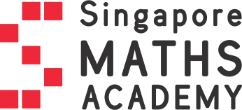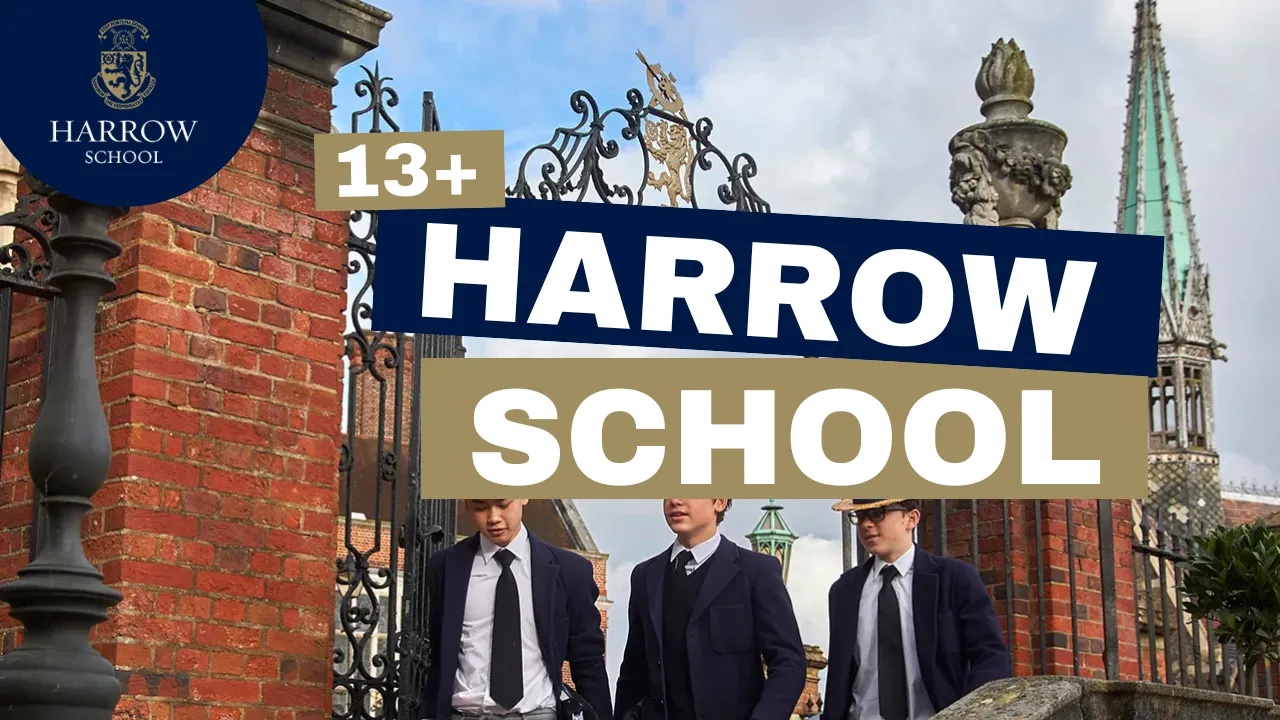Introduction
Harrow School, known for its rich history and academic excellence, is one of the most prestigious schools in the UK. Getting into this esteemed school, especially through the 13 Plus Exam, is highly competitive, making thorough preparation essential.
The Harrow 13+ Maths Entrance Exam is a crucial part of the admissions process. It assesses not only a student’s mathematical skills but also their problem-solving abilities and logical reasoning. To do well in this exam, prospective students must adopt key strategies for effective preparation:
- Understand the Exam Format: Familiarise yourself with the structure and types of questions that will appear on the test. Knowing what to expect can significantly reduce anxiety and improve performance.
- Early Preparation: Start preparing well in advance to allow ample time to cover all necessary topics and practice extensively.
- Utilise Practice Tests: Engage with practice papers and mock exams to simulate testing conditions and identify areas needing improvement.
- Focus on Problem-Solving Skills: Strengthen your ability to tackle complex problems efficiently, as this is a core aspect of the maths assessment.
For some engaging content on how to approach such preparations, you might find this YouTube video helpful. By implementing these strategies, students can enhance their readiness for the Harrow 13+ Maths Entrance Exam, positioning themselves strongly in this challenging admissions process.
Understanding Harrow School and its Admissions Process
Harrow School, an independent school for boys, was founded in 1572 under a Royal Charter granted by Queen Elizabeth I. Throughout its long history, Harrow has built a reputation for academic excellence and leadership development.
Admissions Process for Year 9 (13+):
- Initial Registration: Interested candidates must first register their interest, typically three years before the desired entry date.
- Computerised Test: Applicants sit the ISEB Common Pre-test which assesses English, Maths, verbal and non-verbal reasoning.
- Interview and Group Activity: Successful candidates from the pre-test are invited for an interview and participate in group activities to evaluate their social skills and teamwork abilities.
- Final Offer: Based on performance across all stages, offers are made to successful applicants.
Significance of the Royal Charter:
The Royal Charter is a pivotal element in Harrow’s history. It not only established the school’s foundation but also signifies its commitment to providing high-quality education. The charter represents a historic endorsement of Harrow’s mission to foster academic and personal growth among its students.
The Structure of the 13+ Entrance Examination
Entrance examination format is crucial in understanding what Harrow School expects from its applicants. The admission process consists of three distinct stages:
1. Computerised Test
This initial stage is the ISEB Common Pre-test, a standardised assessment used by many independent schools.
It includes four components:
- Mathematics: Evaluates numerical skills and understanding.
- English: Tests comprehension and language proficiency.
- Verbal Reasoning: Assesses logical thinking and problem-solving using words.
- Non-Verbal Reasoning: Measures spatial awareness and abstract thinking through patterns and shapes.
2. Interview
Candidates who perform well in the computerised test are invited for an interview.
This is designed to gauge personal qualities, interests, and communication skills.
3. Group Activity
Applicants participate in group tasks to assess their teamwork, leadership, and collaborative abilities.
Insights into the Harrow Test
While the ISEB Common Pre-test lays the groundwork, the Harrow Test places a significant emphasis on both maths and English. Here’s what you need to know:
Mathematics Focus
- Problem-solving skills are crucial.
- Questions often go beyond standard arithmetic to include algebra, geometry, and data handling.
English Focus
- Comprehension passages require careful reading and analytical skills.
- Creative writing tasks evaluate expression and clarity.
Understanding these components will help tailor preparation strategies effectively.
Components Assessed in the Maths Exam
The 13+ Maths Entrance Exam at Harrow School evaluates a range of mathematical skills and knowledge areas. The exam is designed to assess both fundamental understanding and advanced problem-solving abilities. Key topics include:
- Arithmetic: Basic operations, fractions, decimals, percentages
- Algebra: Equations, inequalities, sequences
- Geometry: Shapes, angles, area, volume
- Statistics and Probability: Data interpretation, mean, median, mode
Core Level Papers vs Additional Papers
Core level papers cover essential mathematical concepts that all students are expected to master. These papers focus on ensuring a strong foundation in basic arithmetic, algebra, geometry, and statistics.
Additional papers are designed to challenge students who have demonstrated a higher level of proficiency. These papers delve deeper into complex problems and advanced topics. Success in these papers can highlight a student’s exceptional mathematical ability.
Importance of Problem-Solving and Reasoning Skills
The exam places significant emphasis on problem-solving and reasoning skills. Students are required not only to apply mathematical formulas but also to demonstrate logical thinking and the ability to tackle unfamiliar problems creatively.
Example question: If ( x + y = 10 ) and ( x – y = 2 ), find the values of ( x ) and ( y ).
This example illustrates the need for students to use algebraic reasoning to solve simultaneous equations, showcasing both their computational skills and logical reasoning ability.
Preparing for the Harrow School 13+ Maths Exams
Early preparation is crucial for success in the Harrow School 13+ Maths Exams. Starting well in advance allows students to build a solid foundation in mathematical concepts and develop the necessary skills over time.
Recommended Practice Tests and Resources
To effectively prepare, students should utilise a variety of practice tests and resources:
- ISEB Common Pre-test Practice Papers: These provide a clear understanding of the exam format and types of questions.
- Harrow School Specific Past Papers: Available on request or through tutoring services, these papers help familiarise students with the specific style and difficulty level expected by Harrow.
- Online Platforms: Websites such as Singapore Maths Academy offer tailored learning packages and interactive exercises aligned with the curriculum.
Target Scores as Indicators for Passing
Achieving target scores can significantly enhance confidence and readiness:
- Aiming for 70% or higher indicates a strong grasp of the material and boosts chances of success.
- Scoring 60% or above is often considered a good benchmark, signalling adequate preparation while highlighting areas needing improvement.
By focusing on consistent practice and utilising effective resources, students can approach their exams with confidence.
Effective Study Strategies
Utilising Mock Exams to Simulate Testing Conditions
Mock exams are invaluable tools in preparing for the Harrow School 13+ Maths Entrance Exam. They replicate the actual exam environment, helping students become accustomed to the format and time constraints. Regular practice with mock exams can:
- Identify Strengths and Weaknesses: Pinpoint areas where additional practice is needed.
- Build Confidence: Familiarity with the testing conditions reduces anxiety on exam day.
- Improve Time Management: Practising under timed conditions enhances the ability to complete questions efficiently.
By incorporating mock exams into your study routine, you can gain a realistic understanding of what to expect and how to manage the pressure effectively.
Advantages of Tailored Learning Packages for Individual Needs
Every student has unique learning needs, making personalised study plans essential. Tailored learning packages offer customised content that focuses on specific areas for improvement. Benefits include:
- Targeted Practice: Concentrate on particular topics where the student requires extra help.
- Flexible Learning Pace: Adaptable schedules that align with the student’s learning speed and availability.
- Expert Guidance: Access to professional tutors who provide insights and strategies tailored to individual strengths and weaknesses.
Tailored learning packages ensure a more efficient preparation process, addressing each student’s distinctive needs and maximising their potential for success in the entrance exam.
Scholarships and Bursaries at Harrow School
Harrow School offers a range of scholarships to recognise academic excellence and talent in various fields. These scholarships are awarded based on merit and are designed to support students who demonstrate outstanding abilities.
Types of Scholarships
- Academic Scholarships: These are granted to students who exhibit exceptional academic prowess.
- Arts and Sports Scholarships: Talented individuals in the arts, music, drama, and sports can also receive scholarships to nurture their skills.
To assist families from diverse financial backgrounds, Harrow School provides means-tested bursaries. These bursaries help cover tuition fees for students whose families might otherwise be unable to afford the cost of education at Harrow.
By offering both scholarships and bursaries, Harrow ensures that deserving students have the opportunity to benefit from its prestigious educational environment regardless of their financial situation.
Co-Curricular Activities at Harrow School
Co-curricular activities play a crucial role in providing a well-rounded education at Harrow School. These activities give students the chance to develop skills outside of their academic studies, promoting personal growth and social development.
Importance of Co-Curricular Activities:
- Holistic Development: Engaging in various activities helps students discover their interests and talents, promoting a balanced growth of intellect and character.
- Skill Enhancement: Participation in sports, arts, and other extracurriculars enhances teamwork, leadership, and time-management skills.
Examples of Activities:
- Sports: With facilities for cricket, football, swimming, and more, students can excel in physical fitness while learning the value of discipline and teamwork.
- Arts: Drama clubs, music ensembles, and visual arts programmes nurture creativity and self-expression.
- Academic Clubs: Maths clubs, science societies, and debate teams provide platforms for intellectual engagement beyond the classroom.
These activities complement the rigorous academic curriculum at Harrow School by nurturing versatile individuals prepared for future challenges.
Alumni Success Stories
Harrow School has produced a remarkable list of alumni who have excelled both academically and professionally after passing the entrance exams. These distinguished individuals serve as a testament to the school’s high educational standards and nurturing environment.
Notable Alumni
- Sir Winston Churchill: One of the most notable alumni, Sir Winston Churchill, attended Harrow School before becoming the Prime Minister of the United Kingdom. His time at Harrow is often referenced for shaping his leadership qualities and eloquence.
- Benedict Cumberbatch: The acclaimed actor known for his roles in Sherlock and Doctor Strange also walked the halls of Harrow School. His success in the arts highlights Harrow’s support for diverse talents.
- James Blunt: The singer-songwriter famous for hits like You’re Beautiful is another Harrovian who has made a significant impact in the music industry.
These success stories are not merely historical footnotes but sources of inspiration for current and prospective students. They illustrate that with diligence, dedication, and the right educational foundation, achieving greatness is possible.
Conclusion
Approaching the Harrow School’s 13+ Maths Entrance Exam with confidence and diligence is essential for success. By understanding the exam format, utilising effective study strategies, and taking advantage of available resources, applicants can significantly enhance their chances of passing. Remember, consistent practice and a positive mindset are key to overcoming challenges and achieving your goal.
Success in passing the Harrow School’s 13+ Maths Entrance Exam is within reach.
With the right preparation and a commitment to continuous improvement, applicants can conquer any obstacle that comes their way. So, embrace the journey, stay focused, and trust in your abilities. Good luck!

